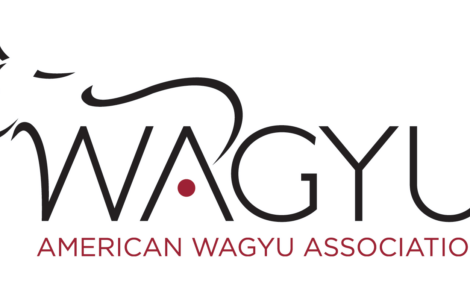



USDA Scientist Dr. Aspen Workman Recognized for Scientific Breakthrough Discovery
Research microbiologist Dr. Aspen Workman honored from breakthroughs in livestock breeding technologyDr. Aspen Workman, a scientist with the United States Department of Agriculture’s (USDA’s) Agricultural Research Service (ARS), has been honored with the 2023 Arthur S. Flemming Award in Applied Science and Engineering for her contributions to the advancement of safeguarding livestock from endemic diseases and ensuring healthy and economically viable food systems and food security.
Dr. Workman is a research microbiologist in the Animal Health Genomics Research Unit at ARS’ U.S. Meat Animal Research Center (USMARC) in Clay Center, Nebraska. Her research focuses on studying the interactions between hosts and pathogens that are critical to disease pathogenesis and uses the findings to develop intervention strategies that can enhance host resistance, improve animal health and welfare, and promote the sustainability of animal agriculture. Dr. Workman led a multidisciplinary effort that resulted in the first gene-edited calf with resistance to bovine viral diarrhea virus, or BVDV.
“Dr. Workman’s discovery is a significant breakthrough in livestock breeding technology that can improve animal welfare, promote the long-term sustainability of livestock production, and reduce the need for antibiotics in cattle,” said ARS Administrator Dr. Simon Liu.
BVDV, a contagious and virulent disease, creates one of the biggest challenges to an $88 billion cattle industry. When beef and dairy cattle become infected with BVDV, they can develop respiratory disease, bloody diarrhea, mouth ulcers, and acute fevers. In addition, BVDV-infected pregnant cows can transmit the virus to their offspring, causing them to carry and shed the virus throughout their lives, which makes it even more challenging to control the disease.

Scientists have been studying BVDV since the 1940s. In 2006, CD46 was identified as the main receptor on cattle cells that allows the virus to enter cells and cause disease. Building on this knowledge, Dr. Workman and her colleagues at USMARC, together with their industry partner, spent three years modifying the virus binding site on CD46 to block BVDV infection. By marking a targeted change to the virus receptor, Dr. Workman’s team produced a healthy calf that withstood a BVDV challenge, demonstrating for the first time that gene-editing can reduce or potentially eliminate the disease in cattle.
Dr. Workman is also dedicated to promoting social equity inside and outside the laboratory. Her research in the laboratory focuses on addressing pressing social issues, such as finding ways to produce sustainable food to feed an ever-growing global population through improved disease detection, prevention, and control while supporting the mission of the ARS Animal Health national program.
Dr. Workman's work goes beyond the laboratory. She serves on a committee for the National Academy of Sciences and actively engages at the high school and university levels in pursuit of her passion for advancing equity in laboratory science for the next generation of scientists and encouraging women to pursue research careers.
The Arthur S. Flemming Award was established in 1948 and is named after Arthur Sherwood Flemming, a distinguished government official who served seven presidential administrations of both parties, most notably as Secretary of Health, Education, and Welfare under President Dwight Eisenhower. He was a two-time recipient of the Presidential Medal of Freedom, first from President Eisenhower in 1957 and then from President Bill Clinton in 1994, two years before his death.
The Flemming induction ceremony will take place on Nov. 13, 2024, at the National Academy of Public Administration (NAPA) Fall Conference.
The Agricultural Research Service is the U.S. Department of Agriculture's chief scientific in-house research agency. Daily, ARS focuses on solutions to agricultural problems affecting America. Each dollar invested in U.S. agricultural research results in $20 of economic impact.


